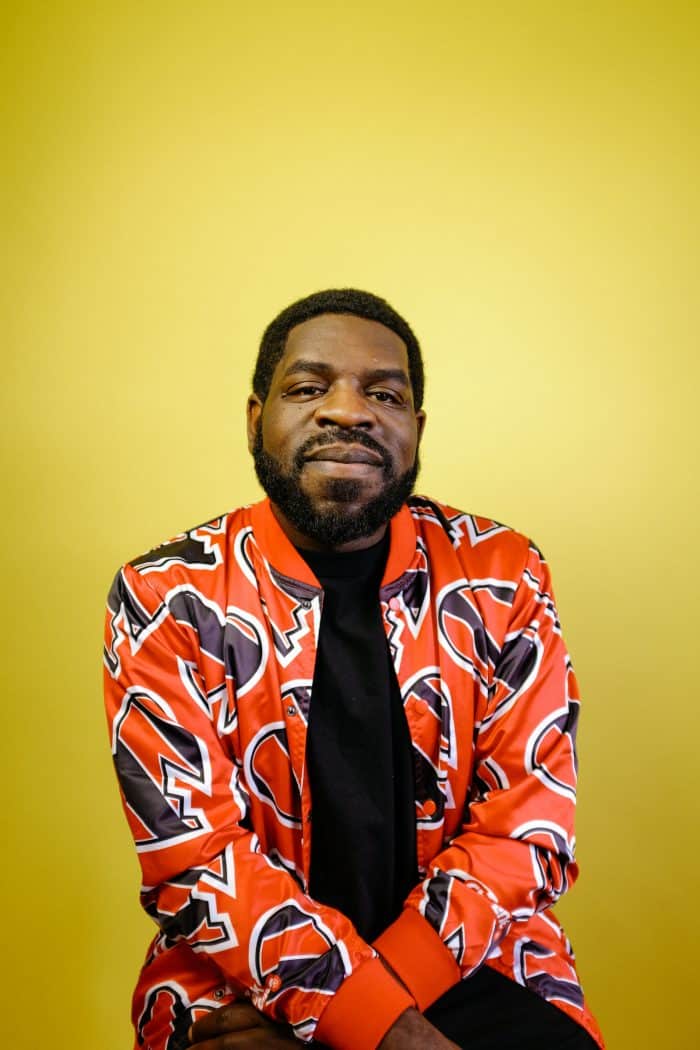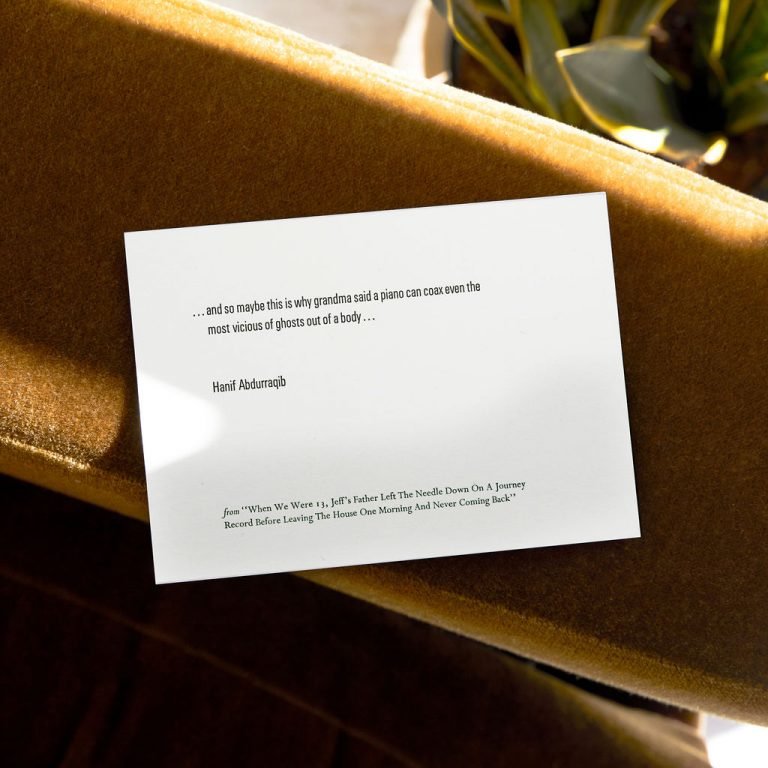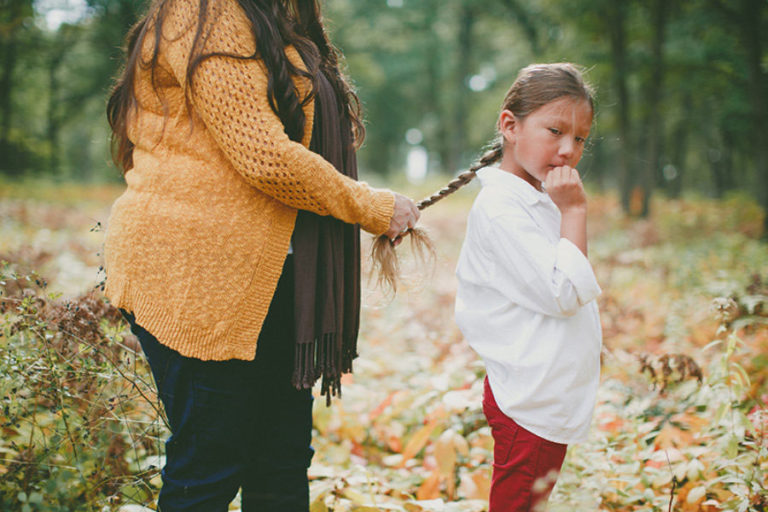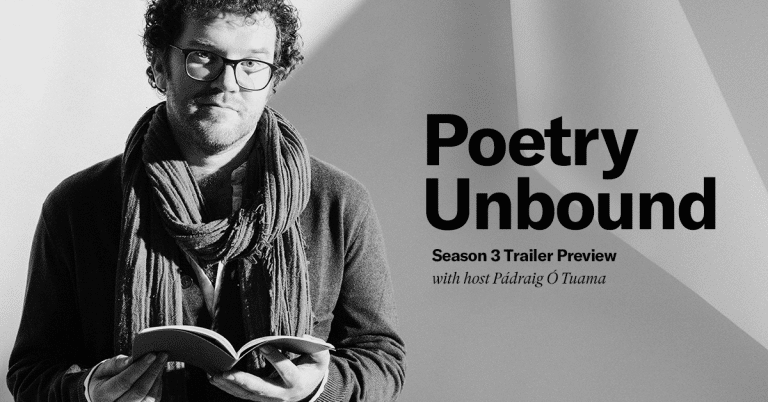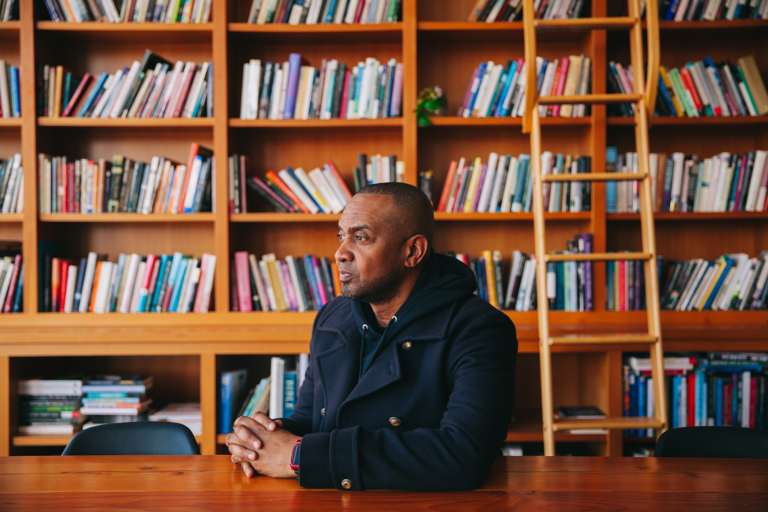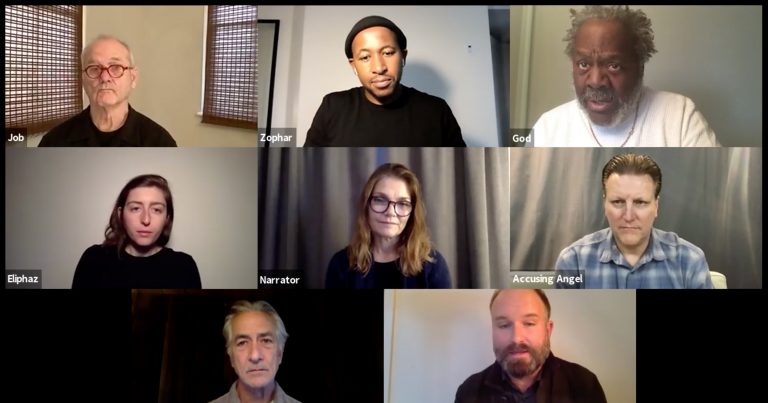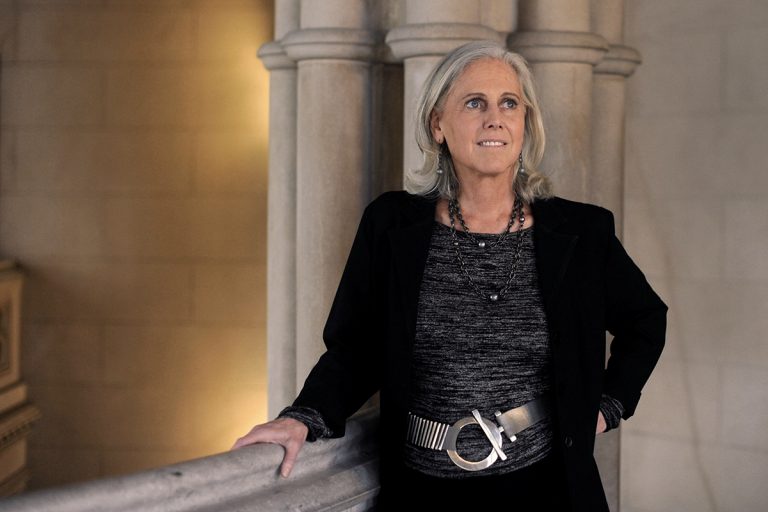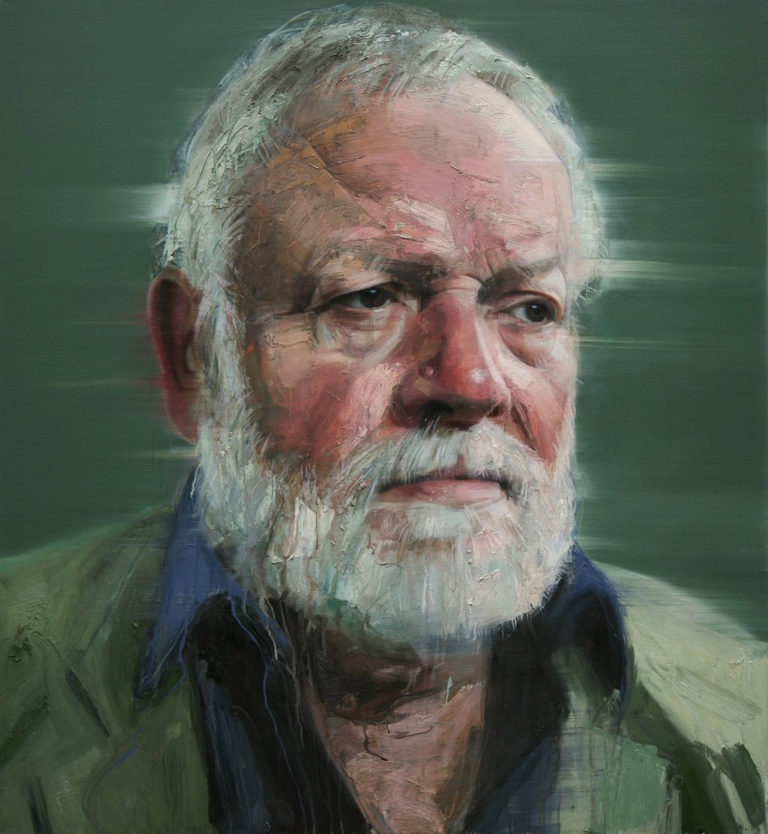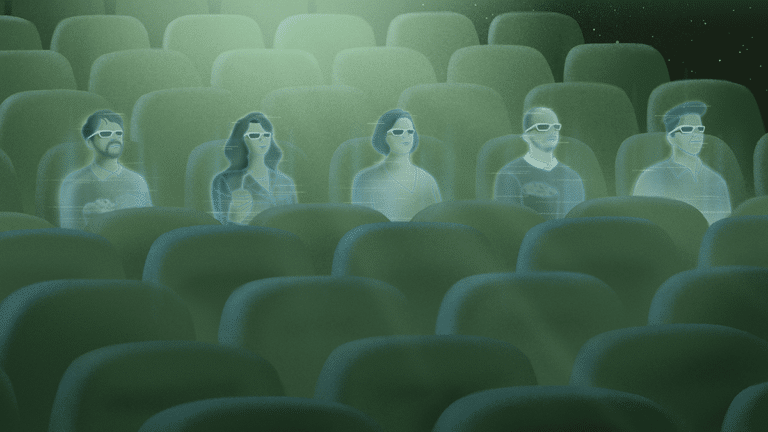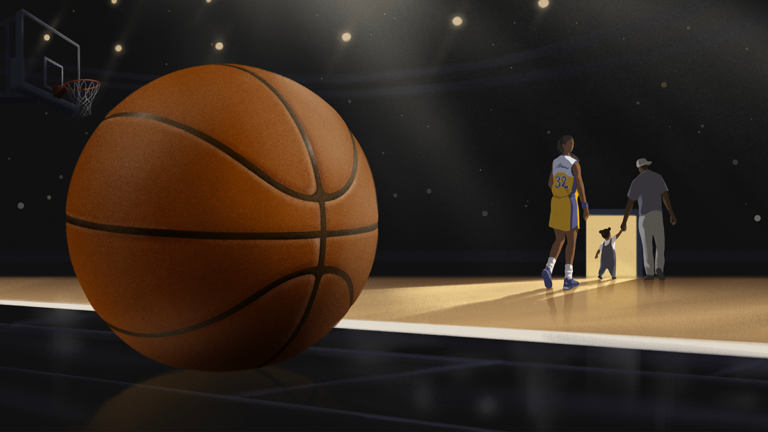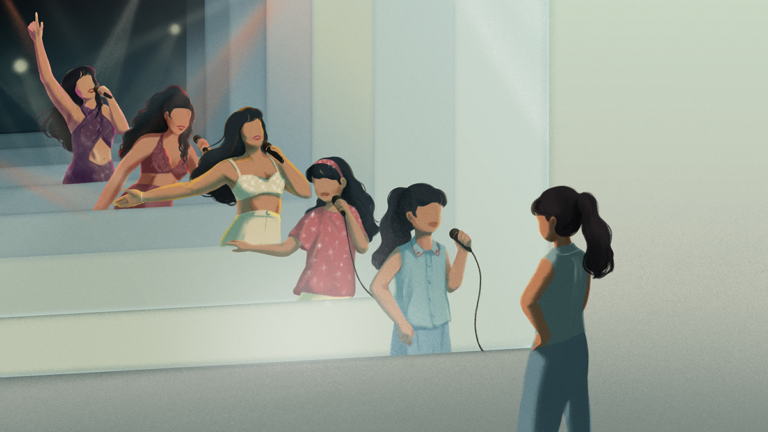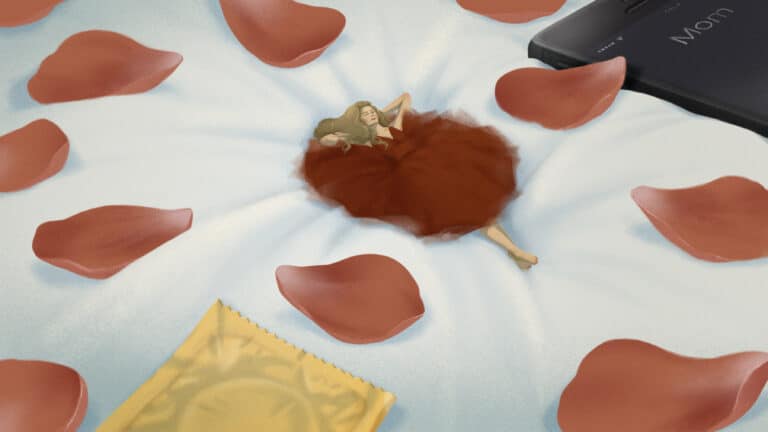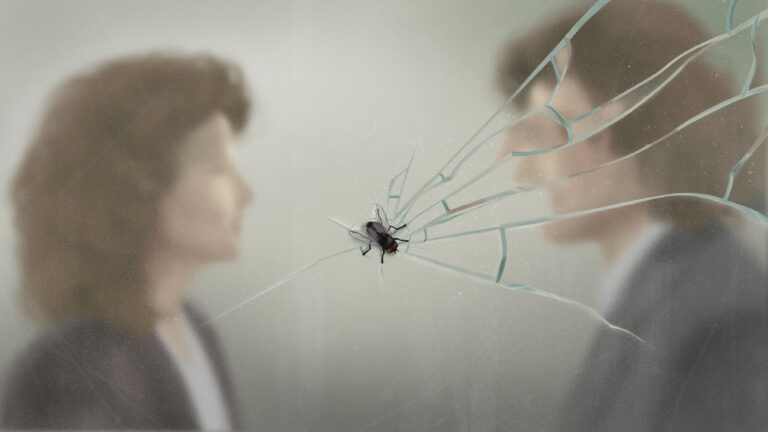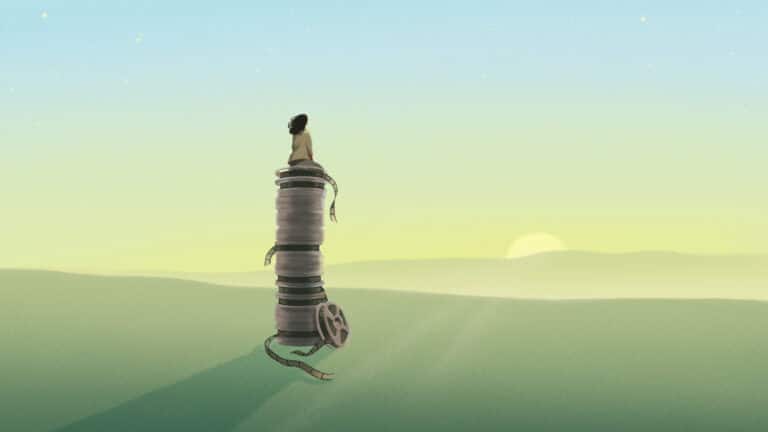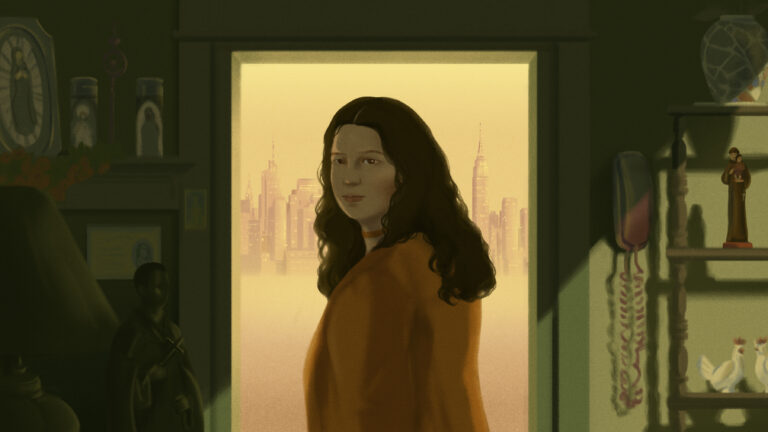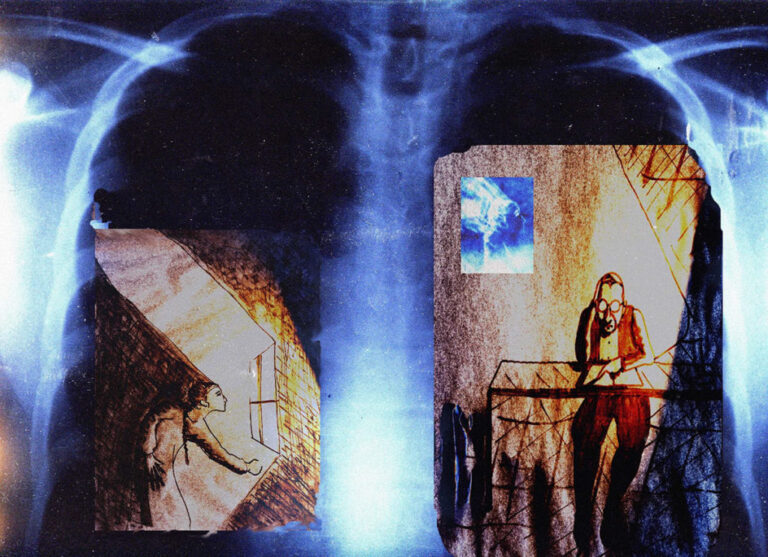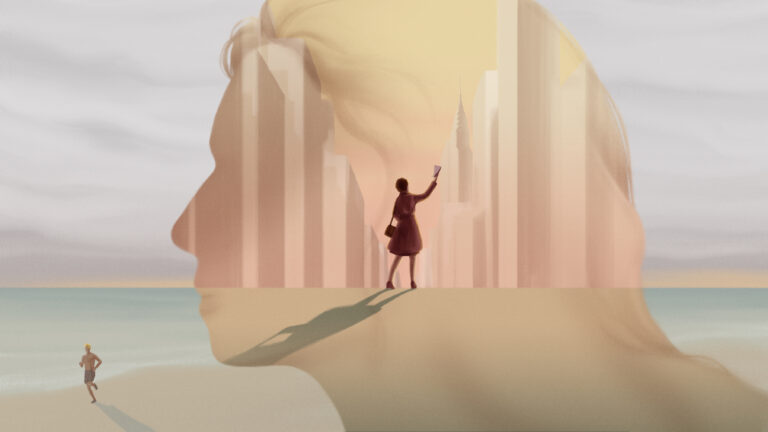Hanif Abdurraqib’s writing is filled with lyricism, rhythm, people and precision. In his essays and poetry, he introduces readers to a soundscape of Black performance and Black joy: we hear hip-hop and jazz, we hear Nina Simone, Aretha Franklin and Little Richard. Music and performance of every kind are the source of his fascination, focus and wisdom: what makes people cry, or feel safe, or brave; held in struggle, joy, or love. Hanif is interviewed by our colleague, Pádraig Ó Tuama, a poet himself and the host of On Being Studios’ Poetry Unbound podcast, now in its third season.
Podcasts
View
- List View
- Standard View
- Grid View
910 Results
Music works a kind of poetry in us. This poem is like a mix-tape of Hanif Abdurraqib’s memories, complete with a soundtrack that’s as roaring as it is tender. An adult now, he remembers moments of grief and growth in the adults of his childhood, and how Journey’s “Don’t Stop Believin’,” opens up more than just those memories. In a poem that you can almost dance along with, Hanif wraps other people’s griefs — and his own — into language that uplifts.
Letterpress art by Myrna Keliher.
Layli Long Soldier is a writer, a mother, a citizen of the United States, and a citizen of the Oglala Lakota Nation. She has a way of opening up this part of her life, and of American life, to inspire self-searching and tenderness. Her award-winning first book of poetry, WHEREAS, is a response to the U.S. government’s official apology to Native peoples in 2009, which was done so quietly, with no ceremony, that it was practically a secret. Layli Long Soldier offers entry points for us all — to events that are not merely about the past, and to the freedom real apologies might bring.
Poetry Unbound with host Pádraig Ó Tuama is back on Monday, April 26. Featured poets in this season include Hanif Abdurraqib, Vievee Francis, Ilya Kaminsky, Li-Young Lee, and Eavan Boland. New episodes released every Monday and Friday through June 18.
Follow us on Apple Podcasts, Spotify, Google Podcasts, Overcast, or wherever you listen.
Across the past year, and now as the murder trial of Derek Chauvin unfolds with Minneapolis in fresh pain and turmoil, we return again to the grounding insights of Resmaa Menakem. He is a Minneapolis-based therapist and trauma specialist who activates the wisdom of elders, and very new science, about how all of us carry in our bodies the history and traumas behind everything we collapse into the word “race.” We offer up his intelligence on changing ourselves at a cellular level — practices towards the transformed reality most of us long to inhabit.
“Remember,” Bryan Doerries likes to say in both physical and virtual gatherings, “you are not alone in this room — and you are not alone across time.” With his public health project, Theater of War, he is activating an old alchemy for our young century. Ancient stories, and texts that have stood the test of time, can be portals to honest and dignified grappling with present wounds and longings and callings that we aren’t able to muster in our official places now. It’s an embodiment of the good Greek word catharsis — releasing both insight and emotions that have had no place to go, and creating an energizing relief. And it is now unfolding in the “amphitheater” of Zoom that Sophocles could not have imagined.
The glory that coexists in human life right alongside our weird propensity to choose what is not good for us; the difference between a place of sheer loss and a sacred space for mourning; grace as something muscular amidst the muck and mess of reality. These are some of the places of musing, sweeping perspective, and raw wisdom a conversation with Serene Jones takes us. And after hearing this, you’ll never think in the same way again about Woody Guthrie, or John Calvin, or what a Christian upbringing in Oklahoma might be.
To reassert the liveliness of ordinary things, precisely in the face of what is hardest and most broken in life and society — this has been Michael Longley’s gift as one of Northern Ireland’s foremost living poets. He is known, in part, as a poet of “the Troubles” — the violent 30-year conflict between Protestants and Catholics, English and Irish. And he is a gentle voice for all of us now, wise and winsome about the everyday, never-finished work of social healing.
For this special bonus episode, we gathered everyone on the This Movie Changed Me team to talk about the role movies have played in our lives, and what we’ve learned from working on this podcast. We’re grateful to all the listeners and guests who have joined us across three seasons of this podcast and have shared their own stories of transformation through movies. Thank you, movie friends!
Gina Prince-Bythewood’s Love & Basketball tells the story of two talented athletes who weave in and out of each other’s lives as they pursue big dreams. Monica Wright (played by Sanaa Lathan) and Quincy McCall (played by Omar Epps) are sometimes friends, enemies, lovers, and competitors. Writer Liara Tamani first saw the movie in 2000 when she was a reluctant student at Harvard Law School. She says Monica’s dedication was a revelation to her. “When [Monica] turned around and looked at Quincy and their child, I almost felt like she was reaching through the screen, asking me, ‘So what you ’bout to do?’”
Selena tells the true story of the iconic Tejano singer, played by Jennifer Lopez, who broke barriers in music and fashion until her untimely death at age 23. Like Selena the person, writer Shea Serrano is also a Mexican American from Texas. When he first saw the movie in 1997, he was captivated by all the things it got right about his world — the accents, dialogue, and intimate moments. When he watches it now, he finds new lessons on parenthood in the relationship between Selena and her father, played by Edward James Olmos.
Blockers tells the story of three teenage girls determined to lose their virginity on prom night; it’s also about their parents mourning the loss of their daughters, watching them grow up and learning to let them go. The 2018 movie, directed by Kay Cannon, has everything you’d expect in a sex comedy: vulgarity, ridiculous gags, and hilarious jokes. It also complicates notions of sexuality and gender in surprising ways. Emily VanDerWerff, a writer and critic-at-large for Vox, was deeply struck by the movie when she first saw it. She realized it was showing her something she never could have imagined: a life for herself as a woman.
It’s pretty intriguing to follow poet Naomi Shihab Nye’s idea that most of us actually “think in poems” whether we know it or not. Rarely, as she points out, do you hear anyone say they feel worse after writing things down. That, she says, can be a tool to survive in hard times like these, to anchor our days and to get into a conversation and community with all of the selves that live on in each of us at any given moment — “your child self, your older self, your confused self, your self-that-makes-a-lot-of-mistakes.” We also hear her read her beloved poem “Kindness” and tell us the story behind it.
David Cronenberg’s The Fly tells the story of one man’s quest to develop teleportation — and everything that goes wrong along the way. The 1986 sci-fi horror movie stars Jeff Goldblum as Seth, the genius scientist, and Geena Davis as Ronnie, a journalist who falls in love with him. After an experiment goes awry, Seth begins a grisly transformation into a human-fly hybrid. Tony Banout, who works in interfaith dialogue, says he saw the movie as a cautionary tale about the dangers of an unchecked ego — and took lessons from it about grappling with death, decay, and grief.
So many of us have been getting through this year by watching movies at home by ourselves, or with friends on Zoom, inventing new ways to grieve and to hope, to keep ourselves laughing, all through the simple act of watching stories unfold on our screens. Movies have the power to unearth the many layers of our identities; to help us answer the question: Who am I? And that is what we trace, by way of a few beloved movies including The Color Purple, The Fly, and Blockers, in this episode.
Real Women Have Curves tells the story of a young Mexican American woman walking between two worlds, trying to please her immigrant family and be true to herself. Ana, played by America Ferrera, dreams of leaving Los Angeles and going to college. But even as she wants out, she yearns for her family’s blessing and acceptance. This in-betweenness — and Ana’s radical acceptance of her body as it is — was powerful to Virgie Tovar, a writer and body image activist. She says the movie showed her that she could ask for what her body needs, no matter its size.
There is a question rolling around even in the most secular of corners: What do religious people and traditions have to teach as we do the work ahead of repairing, renewing, and remaking our societies, our life together? Krista’s conversation this week with Rabbi Ariel Burger, a student of the late, extraordinary Elie Wiesel, delves into theological and mystical depths that are so much richer and more creative than is often imagined even when that question is raised.
The Way We Were is a quintessential breakup movie. Told across decades, it stars Barbra Streisand and Robert Redford as two wildly different people growing together before eventually growing apart. Writer Sophie Krueger says the 1973 movie has resonated differently over time. As a child, she idolized Streisand and loved her portrayal of an independent woman charting her own course. As an adult, she recognized the stakes of any romantic relationship — and how the differences that excite you initially can become irreconcilable.
PS (Movie friends — We’re hosting a live virtual event, and you’re invited! Join us for ‘Yentl’ Changed Me on Sunday, February 28th at 12 p.m. ET. Free tickets are available now.)
The Pause
Join our constellation of listening and living.
The Pause is a monthly Saturday morning companion to all things On Being, with heads-up on new episodes, special offerings, event invitations, recommendations, and reflections from Krista all year round.
Search results for “”
View
- List View
- Standard View
- Grid View
Filters


